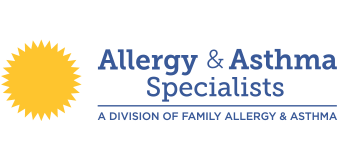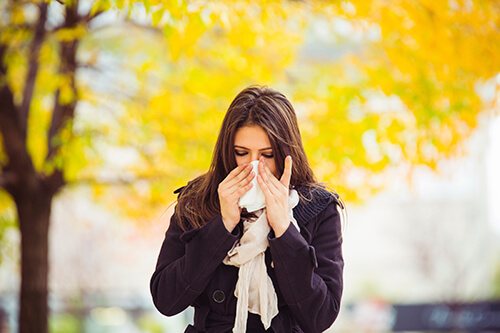Allergy Testing
Get Allergy Tested by Board-Certified Allergists
Nearly 1 in 5 people in the United States have allergies, and many suffer from common symptoms, including congestion, wheezing, and sneezing. You don’t have to keep living with the frustrating symptoms of allergies or asthma. Our board-certified allergists are nearby and offer a variety of effective treatments that can end your suffering for good.
An allergy test is conducted in our offices and will identify what allergens are bothering you. We offer comprehensive testing and treatment for patients of all ages.
Types of Allergy Testing:
Testing will identify the source of your allergic symptoms, which will help you either avoid the triggers or treat them accordingly.
Skin Testing
Skin testing is the most reliable form of allergy testing and is the gold standard for allergy testing. Due to the location of mast cells, just under the skin, the results of skin testing have proven to be more accurate than blood testing in diagnosing allergies.
Blood Testing
Our allergists may order a blood test to measure the amount of Immunoglobulin E (IgE) in the blood. IgE causes mast cells to release histamine, which is responsible for allergy symptoms. While these tests have a wait time to receive the results and can result in false positives, these tests are helpful for some cases.
What we test for:
Allergens are substances found in our environment that cause symptoms in allergic individuals when they are exposed to them.
Animal Allergies: We test for many household pets, like cats, dogs, or rabbits, as well as other animals, including horses and mice. We also test for cockroach allergens.
Indoor Allergies: Dust mite allergens are a common cause if allergies, we test for mites and many types of mold that can be found inside your home.
Environmental Allergies: Tree, grass, and weed pollen are the most common triggers for allergic rhinitis. We test for allergies to several types of each pollen.
Food Allergens: Our allergy specialists can help identify if food allergies in patients of all ages.
What to Expect During Allergy Testing:
Before your test begins, your doctor will discuss your lifestyle and family history and the timeline of symptoms to help determine what could be causing your symptoms. Think about when you experience symptoms beforehand to help our team narrow down which allergens are causing you discomfort.
We recommend stopping certain medications that contain antihistamines three (3) to five (5) days prior to skin testing. Click here for a detailed list of the medications.
When you are in the office, our staff will walk you through the process and conduct the skin test on your back. During the test, small bumps may appear on the skin to indicate a positive result. You will leave your testing appointment knowing what you are allergic to and with a plan to manage your allergies.
We treat allergies in a three-tiered approach; treatment plans may include:
- Avoidance of Allergens
- Medication to control symptoms
- Allergy Shots
Our board-certified specialists will make an individualized treatment plan for you based on the test results and your patient history.
Are you experiencing any of these allergy symptoms?
- Sinus Issues
- Runny Nose
- Wheezing
- Coughing
- Itchy or Watery Eyes



